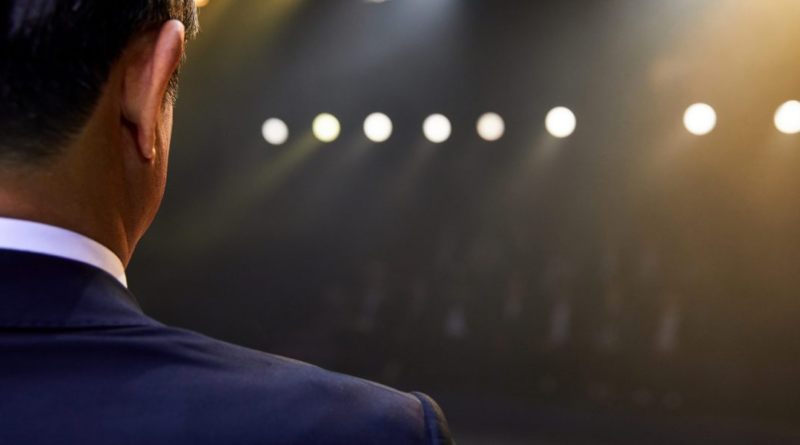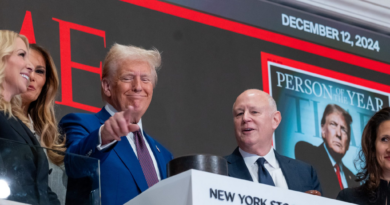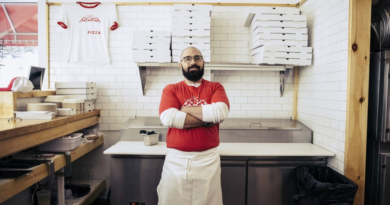Is there a perfect age to be a leader?
Much of the discussion on the upcoming U.S. presidential election revolves around issues of age: Donald Trump is 78 and Joe Biden is 81.
That begs a question: Just what is the perfect age to be president—or any high-stakes leader, for that matter?
That’s a question that has been well-studied by many scholars over the years, Dr. John Rowe, a Columbia University Mailman School of Public Health professor of health policy and aging, tells Fortune.
But that doesn’t mean it’s easy to pinpoint an ideal number.
“First, cognitive function and behavioral functions include a variety of different specific functions, such as fluency, short-term and long-term memory, problem solving, speed … and there’s a fair amount of variability in the effects of aging on these different functions,” he says. “So it’s not a monotonic everything-gets-worse-at-the-same-rate.”
Michael Snyder, PhD, chair of the genetics department at the Stanford University School of Medicine, agrees that cognitive decline is highly variable and specific to each individual.
“That can go pretty late for a lot of people,” he tells Fortune. “We all know people in their 90s who are still super, super sharp. And, likewise, we know people who hit their 60s who slow down a lot.”
Rowe adds that, cognitively, “all 40-year-olds are mostly the same, but when you get up to 80, there are people who are very, very good and some who are not so good.”
Loss of cognitive function exceeds after age 65
With increasing age, there is a greater likelihood of “non-normal loss” of cognitive function, he says, either dementia, the prevalence of which is about 10% at 65 and quadruples by one’s mid-80s, or mild cognitive impairment (MCI).
Most people with dementia are 65 and older, and the Centers for Disease Control and Prevention estimates nearly 14 million will be diagnosed with Alzheimer’s disease by 2060. “Obviously, somebody demented is not qualified to lead a country,” Rowe says. “So let’s just take that off the table.”
But for those with MCI—which occurs in 12–18% of people over 65 and causes behaviors such as forgetfulness and misplacing items—things can get “more interesting.”
Among the cognitive functions that decline with advancing age, he says, the easiest to study is speed of functioning. But while a lab test might show impairment, it’s usually just 10 milliseconds slower than the younger group, which may not be of much consequence.
For example, someone making a decision about international finance would have more than 10 milliseconds. “So some of the changes may not be functionally important,” he notes.
Snyder stresses that people are living longer, healthier lives than they were just a few decades ago. With that, they’re retiring later, and new research published in the journal Neurology suggests people who had cognitively stimulating jobs from their 30s through their 60s are at a lower risk of MCI and dementia in their 70s and beyond.
Plus, with age comes wisdom—just one aspect of aging that might, in fact, be beneficial to a leader.
The minimum age of a U.S. president is 35, the same age of typical cognitive ‘peak’
Some studies have shown that people reach their cognitive “peak” around age 35—the minimum age requirement for U.S. presidents—and that it lasts until some point in their mid-40s, when effects of cognitive aging may start, according to Patricia Boyle, PhD, professor of psychiatry and behavioral sciences at Rush University and a neuropsychologist with the Rush Alzheimer’s Disease Center.
“Of course, every person has a different experience as cognitive health can be influenced by genetics, diet, exercise, blood pressure, connectedness with others, and keeping their minds active or inactive,” she notes.
But then there are the advantages of aging. Rowe says there are aspects of intelligence, like vocabulary, that improve with age. And that’s not all. Studies have repeatedly shown older people have more emotional stability, he adds.
Wisdom that comes with age and experience can’t be discounted
Rowe points to a pair of studies from 2010 by Igor Grossmann, PhD, then at the University of Michigan and now director of the Wisdom and Culture Lab at the University of Waterloo in Canada. The research found that people 65–80 were much better at the following aspects of leadership:
- Bringing multiple perspectives to problems
- Allowing for compromise
- Recognizing the limits of current knowledge that’s available
- Resolving conflict
“Social reasoning improves with age despite a decline in fluid intelligence,” the research notes. “The results suggest that it might be advisable to assign older individuals to key social roles involving legal decisions, counseling, and intergroup negotiations.”
Rowe also points to a 2020 report by Laura Carstansen, PhD, professor of psychology at Stanford University and director of the Stanford Center on Longevity. Her study of 1,000 people aged 18–76 found that, during the early days of the pandemic, older adults reported more resilience than younger people.
Older people were more likely to feel calm, interest, and appreciation, and less likely to feel negative emotions, like anxiety, Carstansen explained in an interview for Stanford on the study, attributing it to experience and a shift in perspective.
“People tend to view older people as frail and helpless, but there is enormous variability among older people, more so than younger people,” Carstansen said. “Some older people are quite infirm. As a group, however, older people are extraordinarily resilient and actually doing better than younger people in terms of emotional well-being.”
Maddy Dychtwald, author of Ageless Aging who has been a thought leader in the field of aging and longevity for 40 years, says that’s a gift of aging that cannot be overlooked.
If you feel more positive about life and are happier, “you bring that perspective to your leadership game,” she explains.
Rowe says it’s his view that if older people are cognitively intact, they can be expected to have more emotional stability, better problem-solving skills, and better negotiating skills.
But he also acknowledges he would not appoint a 95-year-old as president because the likelihood of serious adverse medical issues increases with advancing age.
So would he count an elderly person out altogether?
Rowe doesn’t think it’s fair, given all the obvious exceptions. And different institutions have different leadership needs at different times, he adds, highlighting Winston Churchill, who became the U.K. prime minister at age 66. “He was perfect for World War II, but when the war was over they voted him out of office, because the problems the country had to solve were not the problems that Winston Churchill could solve.”
Dychtwald points to many good examples of older leaders—including Warren Buffett, Pope Francis, and Nelson Mandela, who came into office at age 75. “I think they’re older and wiser and have the maturity to make decisions based on experiences,” she says.
Regarding the current conversation around presidents and age, she thinks people are looking at it in a myopic way, noting that her book examines three different kinds of aging—physical, psychological, and, of course, chronological.
“That’s what people seem really zeroed in on right now,” she says. “I’m 74 and I don’t think that defines me at all. In all modesty, I feel like I’m at the top of my game.”
For more on healthy aging:




